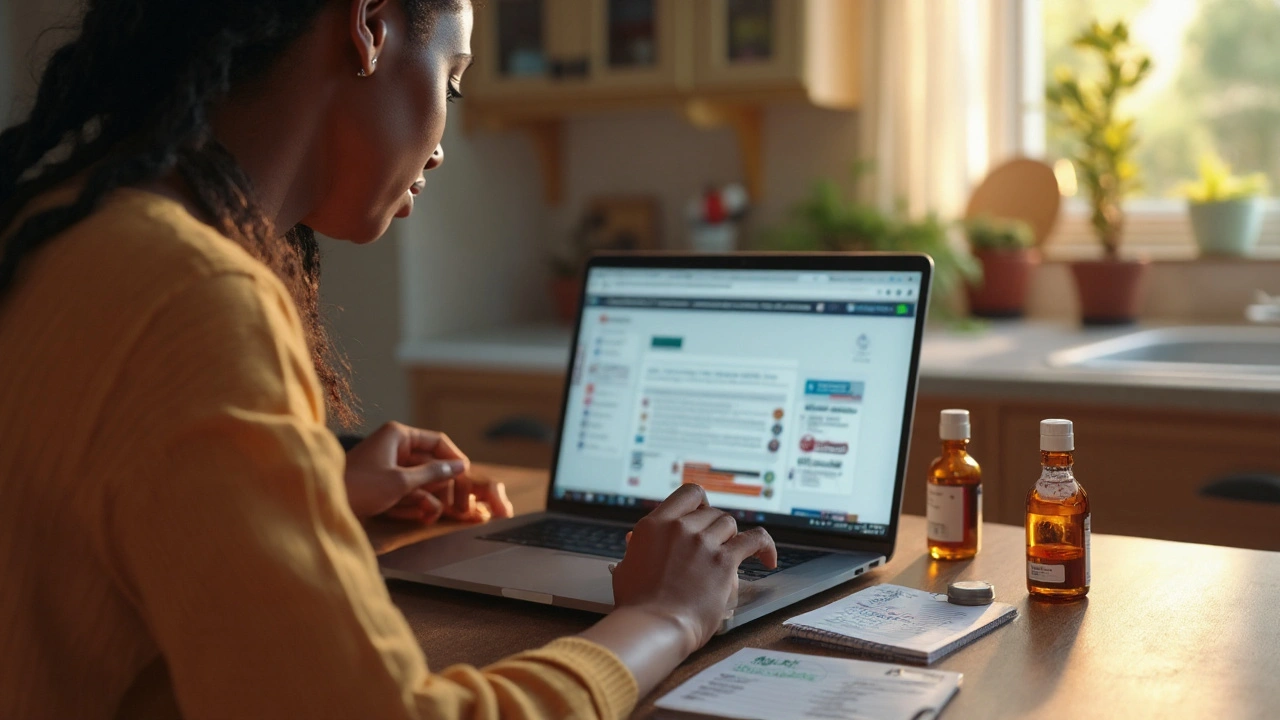
Want cheap generic Plavix? Get safe, legal ways to buy online, real prices, NZ funding tips, red flags, and credible alternatives-without risking fake meds.
Thinking about ordering meds from the comfort of your couch? You’re not alone—more people are turning to licensed online pharmacies for convenience and lower costs. The trick is spotting the trustworthy ones and avoiding scams that can waste money or jeopardize health.
The first thing to check is the pharmacy’s license. In most countries, a legitimate online pharmacy will display a registration number from the national health authority (e.g., Medsafe in NZ, FDA in the US, or EMA in Europe). Click the link next to the number to verify it on the regulator’s website; if the link is broken or missing, walk away.
Next, look for a physical address and a working phone line. Real pharmacies have a brick‑and‑mortarmarket location and staff who can answer questions during business hours. If the site only offers a chat box or an email address, that’s a red flag.
Prescription requirements are another tell‑tale sign. A licensed pharmacy will ask for a valid prescription for prescription‑only medicines and will never ask you to email a scanned copy of your ID. Some services use secure online portals where you can upload your doctor’s note; this is normal and safe.
Start by comparing prices across a few verified sites. The cheapest option isn’t always the best—extremely low prices can mean counterfeit products. Use tools like price‑comparison charts that list the drug’s generic name, dosage, and shipping costs.
Read the privacy policy. A reputable pharmacy will explain how your personal data is stored and will use encryption (look for “https” in the URL). If the site asks for unnecessary information like your social security number, stop the transaction.
Check the payment methods. Credit cards and reputable payment gateways (PayPal, Apple Pay) offer extra protection against fraud. Avoid direct bank transfers or wire services, which are hard to recover if something goes wrong.
Shipping matters too. Trustworthy pharmacies provide tracking numbers and estimated delivery windows. If a site promises “overnight delivery” for a controlled substance without a prescription, it’s likely illegal.
Finally, trust your gut. If the website’s design looks cheap, the copy is full of spelling errors, or the customer reviews seem fabricated, it’s safer to look elsewhere. Real patients leave honest, varied feedback that often mentions both pros and cons.
By following these steps—verifying the license, confirming a real address, demanding a proper prescription, comparing prices, and using secure payment—you can enjoy the convenience of a licensed online pharmacy without compromising safety. Happy, healthy shopping!

Want cheap generic Plavix? Get safe, legal ways to buy online, real prices, NZ funding tips, red flags, and credible alternatives-without risking fake meds.